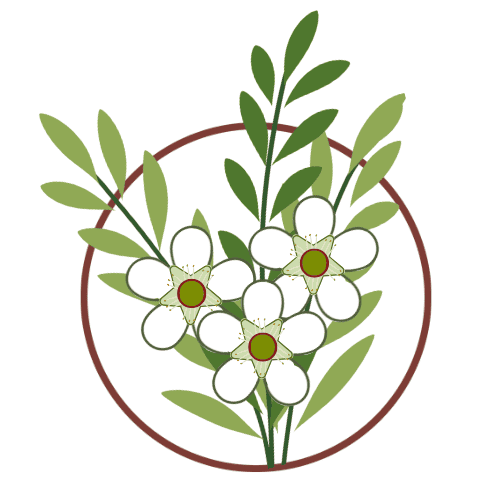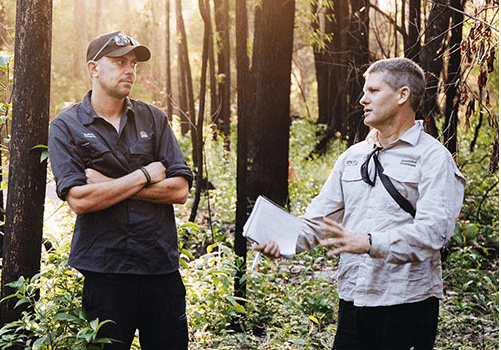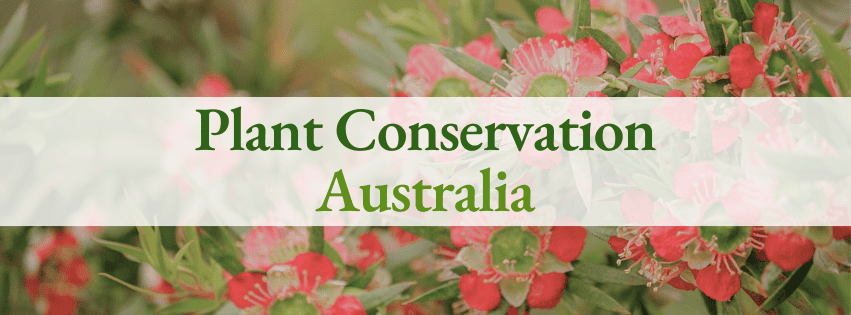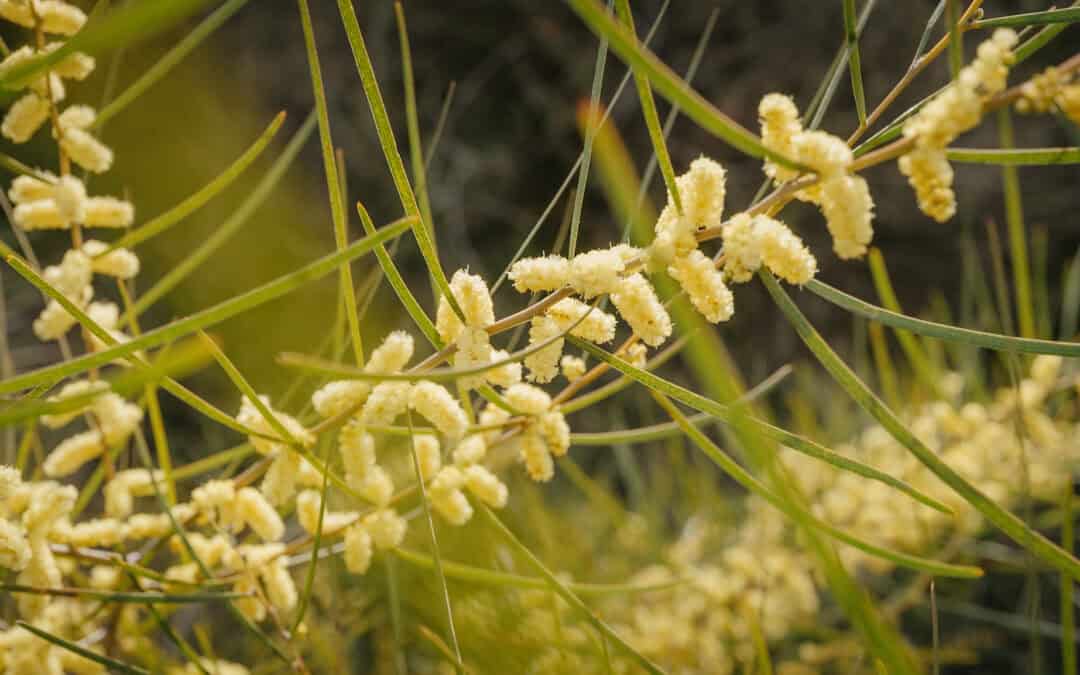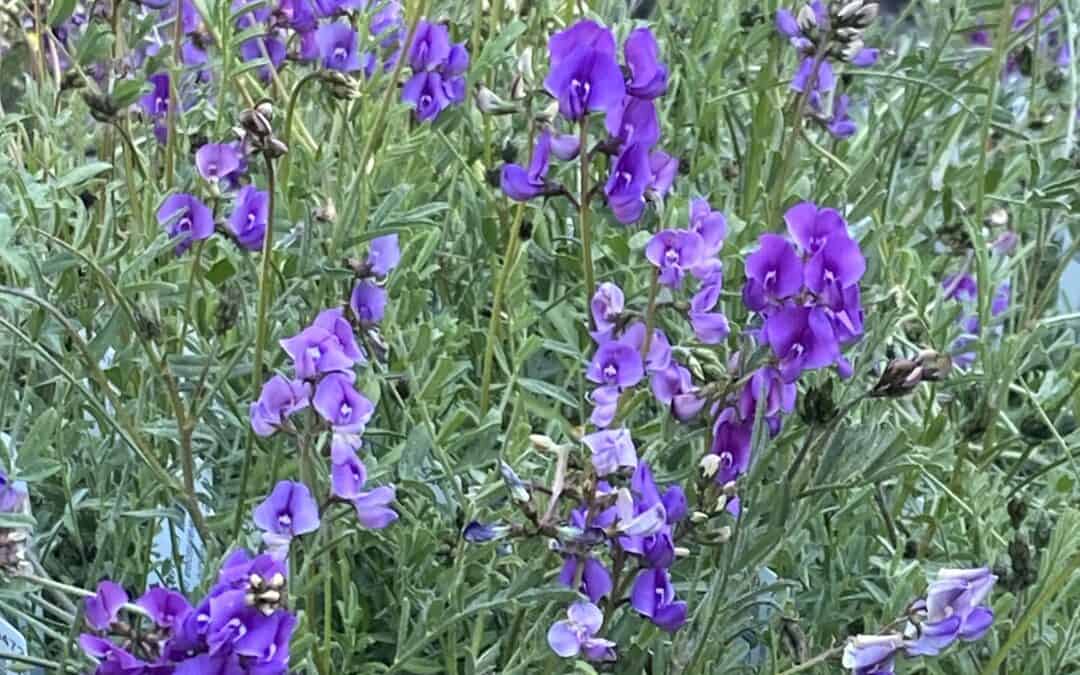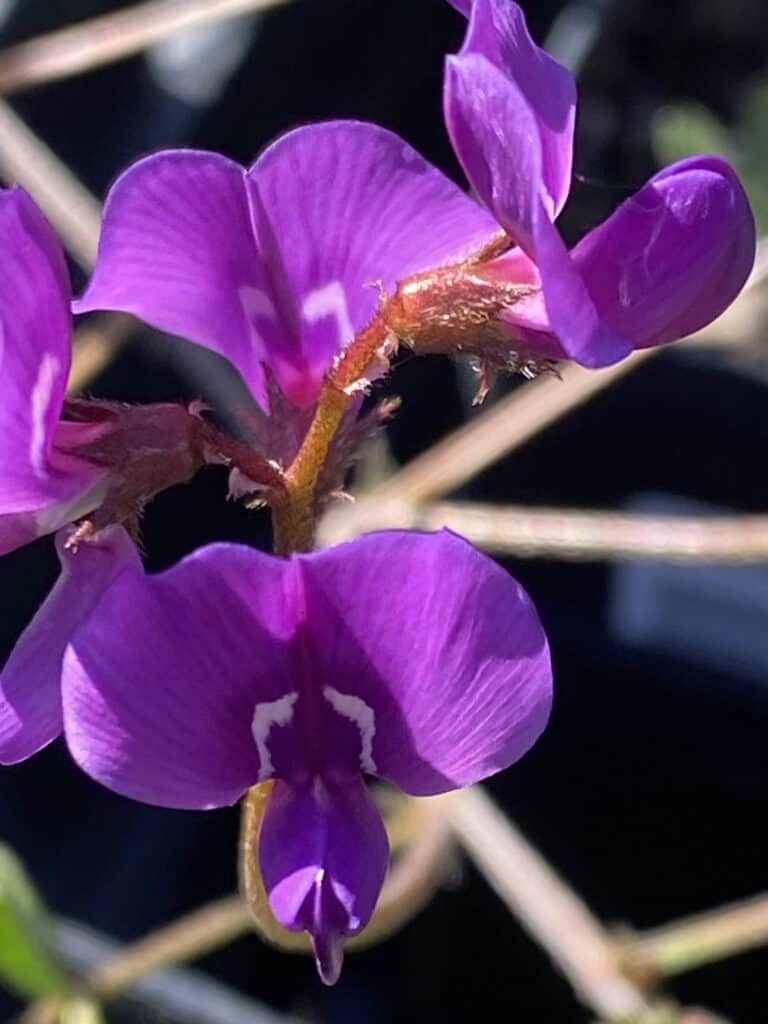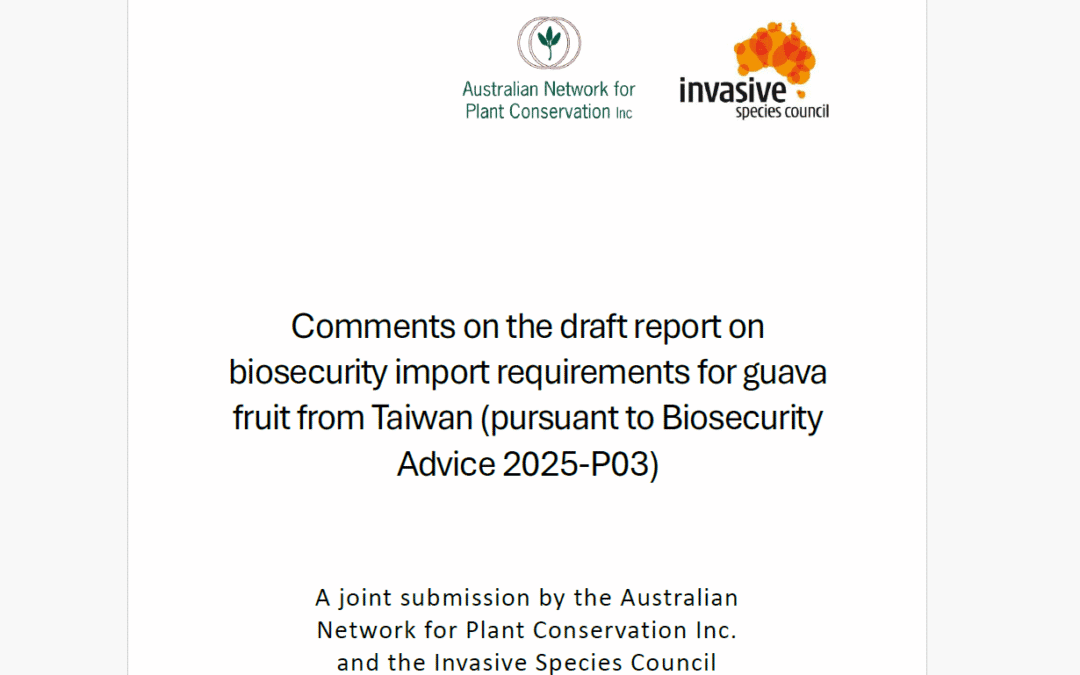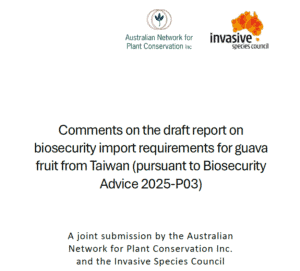
Jan 29, 2026 | News
We’re pleased to announce Caitlin Griffith as our new Project Manager for Victoria! Caitlin has over 25 years’ experience working across nature conservation, community engagement and leadership. Her background spans on-ground conservation, plant surveys and ecological monitoring, alongside advocacy, citizen science and program development.
Caitlin loves working at the interface of science, community and land management—designing education resources, running workshops with scientists and practitioners, and supporting advocacy for habitat protection. She is passionate about making ecological knowledge accessible and empowering communities to take action for nature.
Caitlin has always had a passion for watching wildflowers emerge with a particular love for the showy pea flowers and orchids.
She holds a Bachelor of Science in Conservation Biology and Ecology and a Graduate Certificate in Social Ecology.
Caitlin will be coordinating two one-day workshops on threatened flora conservation – one in Horsham on Wednesday 19 August and one in Orbost on Wednesday 2 September 2026 – as well as a two-day Victorian threatened flora conservation conference planned for Melbourne in November, as part of the “Preventing the extinction of Victoria’s threatened flora” project.

Jan 7, 2026 | News
The Department of Agriculture, Fisheries and Forestry (DAFF) have awarded their 2025 Australian Biosecurity Awards – Environmental Biosecurity to Dr Geoff Pegg and Aj Perkins. Geoff is Senior Principal Forest Pathologist Queensland Department of Primary Industries, and Aj is Senior Project Officer, Department of Climate Change, Energy, Environment and Water (NSW). Together they have collaborated and partnered with a wide variety of stakeholders on an innovative 2-year program which builds capacity to protect culturally significant species from the threat from introduced pests and diseases, including Myrtle Rust. The program included developing and delivering training modules for Indigenous Rangers and land managers to improve their ability to spot and report biosecurity threats. They also built a groundbreaking trans-Tasman partnership in Indigenous forest health and environmental biosecurity with Māori custodians and scientists from New Zealand (Aotearoa).
The success of the program has meant that it has been extended through to 2029.
The program also produced the fantastic Roots for Resilience video which tells the story of the importance of environmental biosecurity for culture, and highlights the need for collective action. It can be found here: https://youtu.be/d2M18ApA-uA?si=sMme1yzTERJrfXrG
Read the DAFF article about the award and Geoff and Aj’s work here: https://www.agriculture.gov.au/about/news/aba-geoff-pegg-aj-perkins

Dec 5, 2025 | News
We’re thrilled to share some exciting news: the Australian Network for Plant Conservation Inc. is rebranding to Plant Conservation Australia! We believe this new name better conveys the mission of our organisation, reflects what we stand for, and will improve our visibility and name recall, providing the opportunity for expanding our presence in the public consciousness. This change has been in the works for several months, stemming from discussions at our Strategic Planning workshop with the ANPC Management Committee back in February. It was then refined through the subsequent establishment of a dedicated Branding and Marketing Working Group which reported to committee on ideas and proposals. A pdf timeline overview of the process of rebranding can be found here.
Members may recall a few months ago we circulated a survey on the proposed name change. Your feedback was invaluable. We received largely supportive responses to the proposal, and great feedback in terms of how to implement the change in a way which is sensitive to the history of the organisation. This feedback will help to ensure that we continue to do our core business of building connections between the latest science and practices in plant conservation. A big thank you to all of you who responded to the survey and contributed your thoughts.
Same tagline, same mission: “The national network that links people, research and action in plant conservation” remains at the heart of what we do. And we will continue to trade under our legal entity of ANPC. We’ll keep you informed every step of the way through e-news, social media, and email updates.
Coming soon:
- Logo & website refresh: A fresh look to match our new name.
- Updated Prospectus & other materials: Clearer, stronger messaging for our partners and supporters.
- Formally launching the new name: At APCC15 in Port Douglas in August 2026.

Nov 21, 2025 | News
Are you passionate about the conservation of Victoria’s threatened native plants? Use your excellent interpersonal, communication and organisational skills to:
- work collaboratively with a diverse team of stakeholders to plan and deliver four plant conservation events in Victoria.
- work in a timely manner, with minimal supervision, and within strict deadlines.
- draft communications materials for a broad range of audiences including websites, newsletters and social media.
Title: Project Manager, Victoria
Location: Remote, VIC (Melbourne preferred)
Salary etc: $65 p.h. casual rate (includes leave loading) + 12% super. Average 10 hours/week for 12-month contract, worked flexibly throughout the year depending on need.
Download the Position Description here.
Objectives of the position
- Undertake two workshops and one conference on Victorian threatened flora conservation to bring together stakeholders, first nations people and community members.
- The two workshops aim to disseminate the results of the three-year project “Preventing the extinction of Victoria’s threatened flora” in the eastern and western regions of the state and establish networks for conserving threatened flora.
- The conference aims to broaden the scope to other Victorian threatened flora along with their research and management.
- All three events will be undertaken in collaboration with the Royal Botanic Gardens Victoria (RBGV), La Trobe University and other project partners.
- Undertake one Bring Back the Banksias workshop to disseminate the results of genetic analysis work undertaken since 2020.
- To assist the ANPC Management Committee in fulfilling its Mission to ‘promote and develop plant conservation in Australia’.
Background
The three-year “Preventing the extinction of Victoria’s threatened flora” project aims to prevent the extinction of 24 endangered or critically endangered Victorian plants. Funded by the Victorian Government’s Nature Fund Grants, it is focusing on two botanical hotspots, the Gippsland and Grampians regions, as well as threatened flora from the Barwon South West and Port Phillip regions. Click here and here for more information on this project.
Many partners are collaborating on this project and will form a major part of the events as both presenters and attendees. Other project partners include the Victorian Department of Energy, Environment and Climate Action (DEECA), Parks Victoria, Trust for Nature, Wimmera Catchment Management Authority, Nillumbik Shire, ENVITE, Bairnsdale & District Field Naturalists Club, Friends of the Grampians Gariwerd, WAMA Botanic Gardens, Halls Gap Botanic Gardens and the Australasian Native Orchid Society Victorian Branch.
The “Bring Back the Banksias” project undertaken from 2014 to 2020, aimed to improve the conservation status of Silver Banksia (Banksia marginata) across regional Victoria and south-western NSW. This included coordinating the collection of plant material for genetic testing across its range to inform sound restoration strategies. This work is now complete and there is a need to disseminate the results to establish recommendations and strategies for seed procurement for restoration and best mixes for SPAs. Click here for more information on this project.
How to apply
Download the Position Description here.
Your application must address all the Selection Criteria and separately include an up-to-date CV with the contact details for two referees.
Please send your application to the ANPC Business Manager, Jo Lynch, by 5pm Friday 5 December via email to business@anpc.asn.au
The position will remain open until filled, with the first closing date 5 December and interviews to be held the following week via Zoom.
For more information, please contact the ANPC Business Manager via email business@anpc.asn.au and provide a phone number if you would prefer a return call.

Oct 23, 2025 | News
The ‘Preventing the Extinction of Victoria’s Threatened Flora Program’ is leading conservation efforts for the endangered Kneed Swainson-pea, Swainsona reticulata. The Kneed Swainson-pea is listed as Endangered in Victoria under the Flora and Fauna Guarantee Act 1988, due to habitat destruction leaving relatively few, disjunct populations.

RBGV scientists Dr Noushka Reiter, Dr Gareth Holmes, Alex McLachlan, and horticulturist Holden Sayers have been working together to propagate the Kneed Swainson-pea. They have successfully identified the native Rhizobia which they have been using to symbiotically propagate the species on mass (pictured here). The rhizobia fix atmospheric nitrogen and convert this to a form that the plant can use. The association of our native peas with Rhizobia has allowed them to grow throughout much of Australia in our nutrient poor soils. Our long-term aim is to re-establish populations.
The ‘Preventing the extinction of Victoria’s threatened flora’ project is led by Royal Botanic Gardens Victoria in partnership with La Trobe University, Australian Network for Plant Conservation, DEECA, Parks Victoria, Trust for Nature, Wimmera Catchment Management Authority, Nillumbik Shire, ENVITE, Bairnsdale & District Field Naturalists Club, Friends of the Grampians Gariwerd, WAMA Botanic Gardens, Halls Gap Botanic Gardens, and the Australasian Native Orchid Society Victorian Branch.
Photo credit: Noushka Reiter

Oct 10, 2025 | News
Last month the ANPC and the Invasive Species Council filed a joint submission in response to the Biosecurity Import Requirements Draft Report issued with Biosecurity Advice 2025-P03, which recommends the allowing of importation of fresh guava fruit (Psidium guajava) from Taiwan. The Draft Report excludes Myrtle Rust (Austropuccinia psidii) from risk assessment on the grounds that it is not present in Taiwan.
We argue that this finding was not well justified – a concern validated by the confirmed occurrence of Myrtle Rust in Taiwan, reported after the Draft Report’s publication. Although DAFF now proposes to
conduct a risk assessment of Myrtle Rust, in the submission we provide a critique of the original decision to exclude Myrtle Rust from assessment, as well as recommendations for revision and to seek advice from experts in the National Myrtle Rust Working Group prior to publishing.
To read the full submission, click here.


